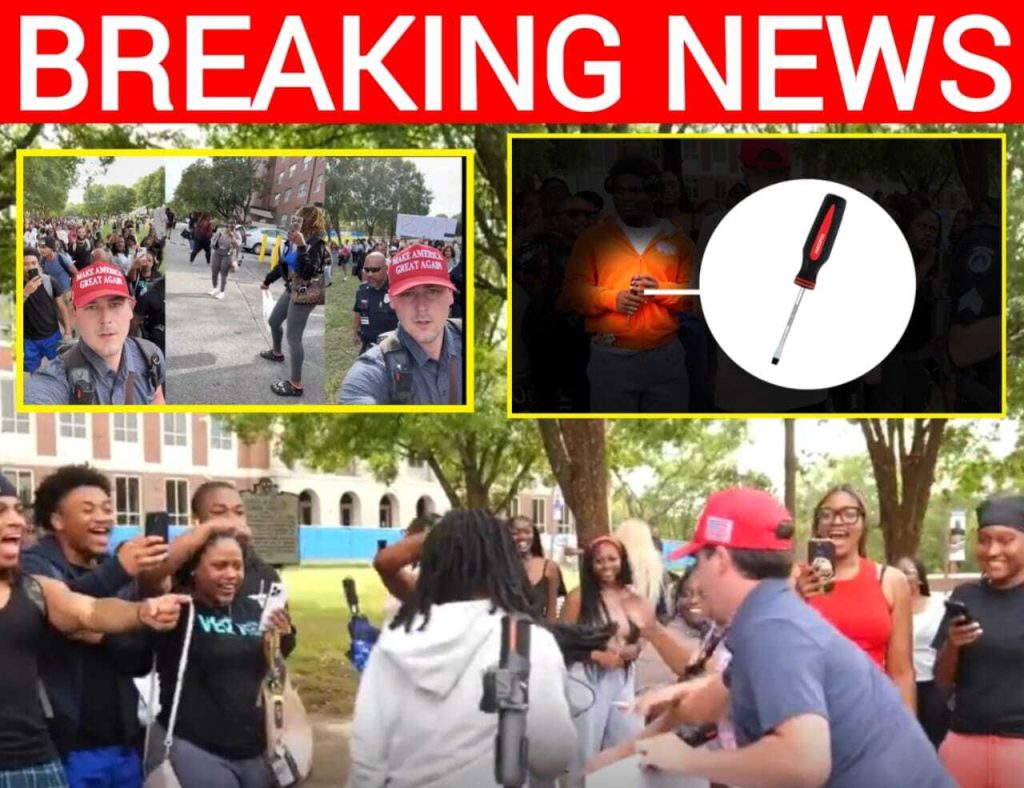Turning Point USA Activists Swarmed and Harassed at Tennessee State University as Free Speech Rights Face New Challenges on Campus
The video is difficult to watch without feeling a sense of disbelief. What was meant to be a peaceful outreach event by members of Turning Point USA quickly turned into a scene of chaos at Tennessee State University, where students were caught on camera surrounding the activists, ripping apart their signs, and even bringing screwdrivers that could have been used as weapons. The confrontation escalated to the point where the activists said they were blocked from leaving campus. For many, this moment has become another flashpoint in the long-running battle over free speech and political expression in American universities.
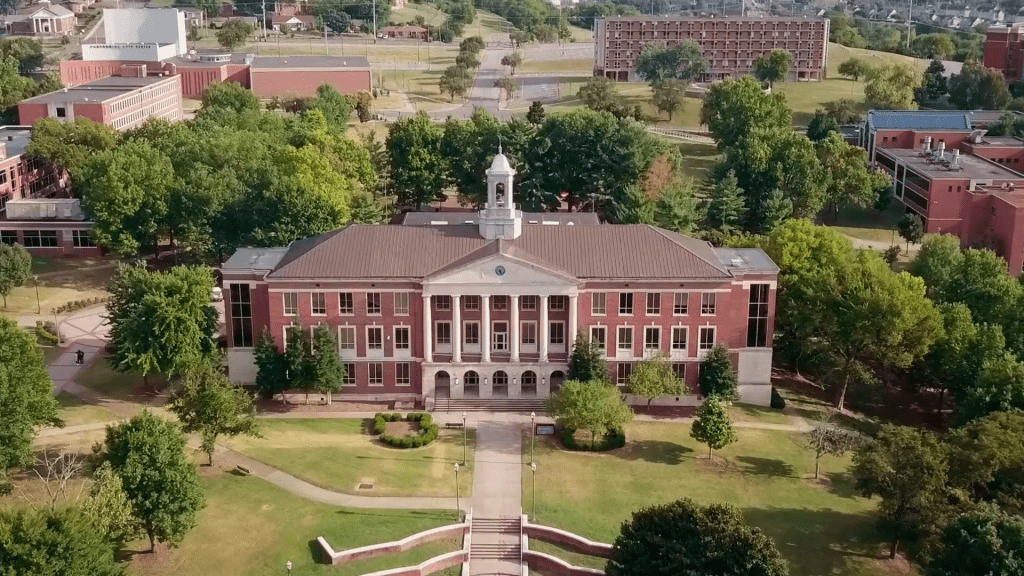
The incident happened in Nashville, where TSU, a historically Black university, has a long tradition of student activism. On this day, however, the activism crossed into aggression. Turning Point USA, an organization known for its conservative advocacy and defense of free speech, set up to engage students in dialogue, only to be met with vandalism and intimidation. The signs they brought to campus were repeatedly stolen and destroyed, with video evidence showing students gleefully tearing them apart. The activists reported feeling trapped, hemmed in by a crowd that made it impossible to safely leave.
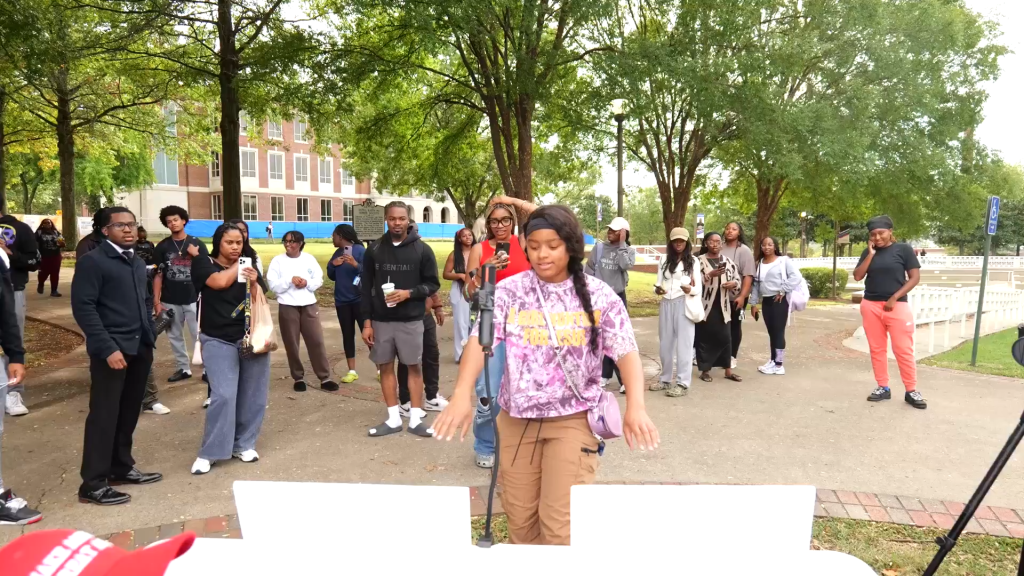
This is not the first time that campus tensions have boiled over when TPUSA or other conservative groups have appeared. Across the country, universities have been wrestling with how to balance free expression with student safety, but often the scales tip unevenly. In Tennessee, the state legislature tried to address these issues through the Campus Free Speech Protection Act passed in 2017. That law was designed to ensure that all viewpoints could be expressed on public campuses, regardless of whether they were considered popular or controversial. Yet what unfolded at TSU suggests that laws on paper are not always enough to guarantee rights in practice.
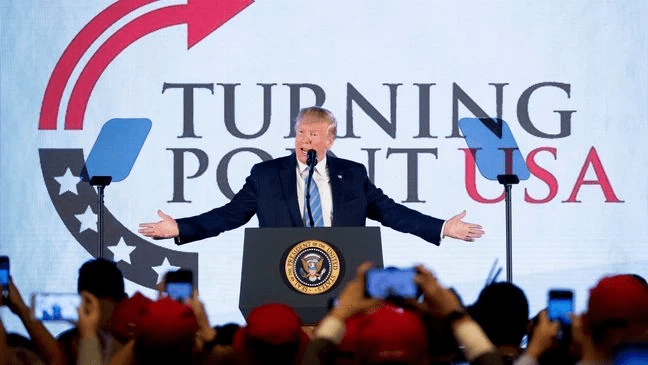
For Turning Point USA, the clash at TSU underscores why their work has grown rapidly in recent years. With over 120,000 requests for new chapters nationwide, the organization has tapped into a frustration among young conservatives who feel marginalized in academic settings. Its founder, Charlie Kirk, often argued that universities have become hostile to conservative values, and what happened in Nashville seemed to confirm those concerns for many watching online. The images of signs being ripped, students shouting down their peers, and activists surrounded on a public campus struck a chord with viewers across the country.
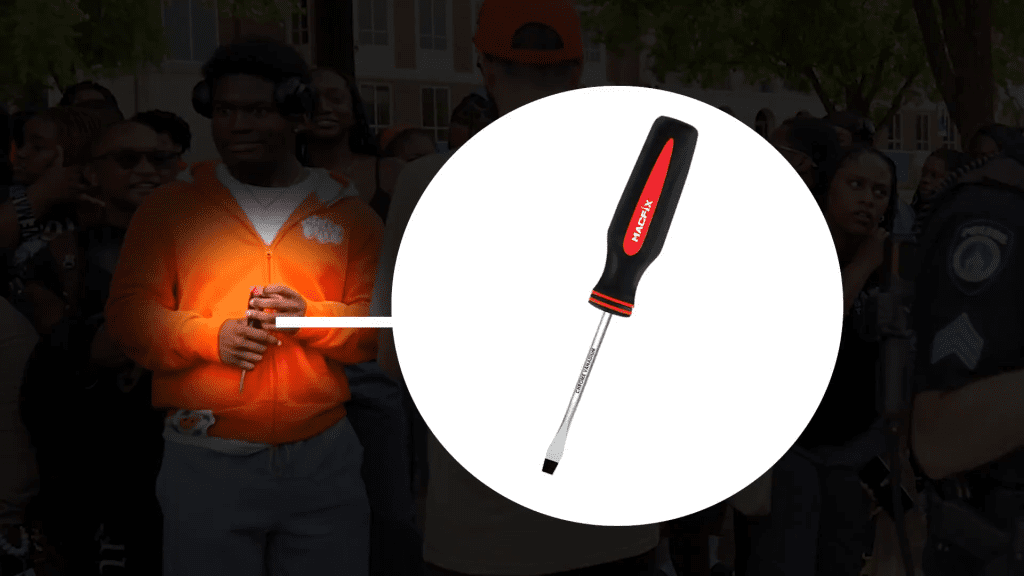
TSU itself has a long history of protest. In 1990, students occupied the administration building to demand improvements on campus, a moment that has been remembered as a proud example of student activism. But this latest episode raises questions about where the line is drawn between protest and harassment. Peaceful protest is protected speech, but blocking exits, threatening individuals, and destroying property crosses into territory that undermines the very principles of free expression that student activists have historically fought to uphold.
The larger question now is what responsibility universities have to intervene. Free speech advocates argue that institutions should step in immediately when mob tactics are used to silence voices, regardless of political affiliation. Others say universities are in an impossible position, trying to balance the right to protest with the obligation to maintain order. In this case, the images tell their own story, and the perception that TSU failed to protect speech has already fueled new debates about bias and accountability in higher education.
As the dust settles, the TSU incident is more than just a campus clash. It is part of a national struggle over whether America’s universities will remain places of open debate or whether they will become arenas where only certain voices can be heard. For the students and activists who lived through it, the confrontation will likely leave lasting scars. For the rest of the country, it is yet another reminder that free speech, once taken for granted, must be actively defended — especially where it is tested the most.
